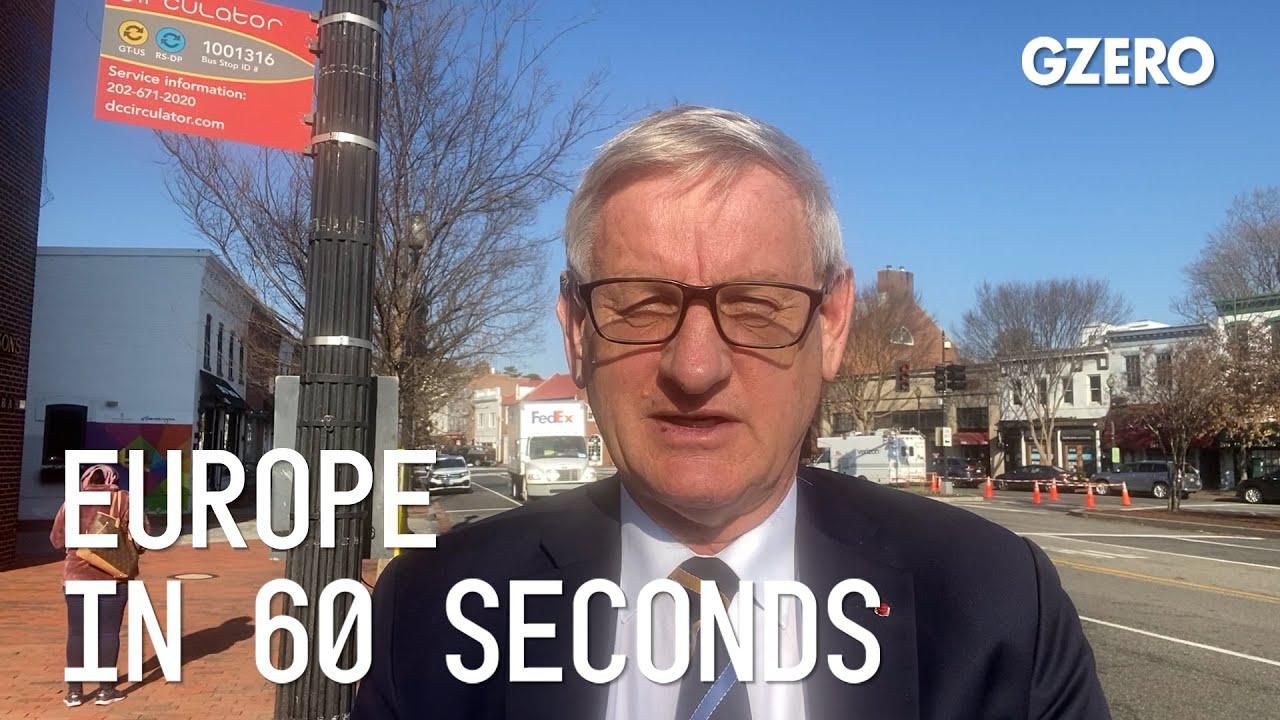GZERO Europe
EU fast-tracks Ukraine membership application

Anti-Tank Weapons Needed To Achieve Peace in Europe | Europe In :60 | GZERO Media

Carl Bildt, former Prime Minister and Foreign Minister of Sweden, shares his perspective from Washington.
First question, what happened to Ukraine's application for EU membership?
Well, that's a process that takes a long time, but what was decided by the heads of state and government of the European Union yesterday was to send it immediately to the European Commission for its assessment. That's a process that normally takes some time, but the fact that it was done immediately is as strong a signal as you can get for a process that unavoidably takes a substantial amount of time.
Secondly, what can we do to support better Ukraine, militarily?
Well, there has been a question of fighter aircraft. That's a more complicated thing. I don't think the US is particularly keen on that because of the risk of escalation. And the key thing I would say is to have a very rapid supply of anti-tank weapons. That's been supplied by the US, by Sweden, by the UK and by others, and the more we can increase that supply, because they will use them, the more they will slow down and possibly stop the Russian advance. More complex weapons take time, require training, will not be effective immediately. Anti-tank weapons that's what's needed for peace in Europe.
In this Quick Take, Ian Bremmer addresses the killing of Alex Pretti at a protest in Minneapolis, calling it “a tipping point” in America’s increasingly volatile politics.
Who decides the boundaries for artificial intelligence, and how do governments ensure public trust? Speaking at the 2026 World Economic Forum in Davos, Arancha González Laya, Dean of the Paris School of International Affairs and former Foreign Minister of Spain, emphasized the importance of clear regulations to maintain trust in technology.
Will AI change the balance of power in the world? At the 2026 World Economic Forum in Davos, Ian Bremmer addresses how artificial intelligence could redefine global politics, human behavior, and societal stability.
Ian Bremmer sits down with Finland’s President Alexander Stubb and the IMF’s Kristalina Georgieva on the sidelines of the World Economic Forum to discuss President Trump’s Greenland threats, the state of the global economy, and the future of the transatlantic relationship.